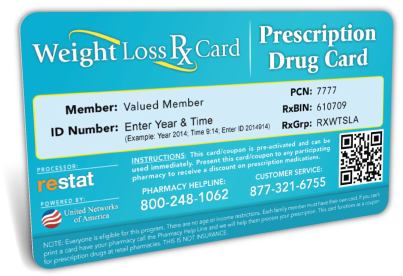The FDA has approved four weight loss prescriptions in the recent years. Although there is an abundance of information on the web, consumers seem to lack knowledge of these drugs. Although medications like Qsymia , Saxenda , Belviq and Contrave can help patients lose weight, this doesn 't mean that it comes without risks. Before you talk to your doctor about which prescription is right for you, here are several things you should know.
- Lifestyle - You MUST diet and exercise while using weight loss prescriptions to receive long-term results.
- Side Effects- Like most prescription medications, side effects can be expected. For example, Qsymia , can increase heart rate in some consumers and Contrave can cause seizures.
- Patient Must Qualify - Weight-loss medications are approved for people with significant weight problems. According to the FDA, you need to have a significant weight problem to be prescribed a weight-loss drug, such as a body mass index of more than 30, or weight that makes it difficult for you to control other health issues, like high blood pressure, high cholesterol, or type 2 diabetes.
- Pregnancy - Women who are pregnant or women who are trying to get pregnant should not consider taking medications such as Qsymia , Saxenda , Belviq and Contrave . These medication can cause harm to the baby.
- Differences in Medications Some block fats, while others curb appetite. The ones that block fat in the food you eat can have unpleasant gastrointestinal side effects. Orlistat, an oral medication that blocks fat absorption, is sold over-the-counter as Alli, and as the prescription Xenical. Other oral medications, like Qsymia, Belviq, and Contrave, act as appetite suppressants. Saxenda is an injectable medication that mimics a hormone that tells your brain you 're full.
